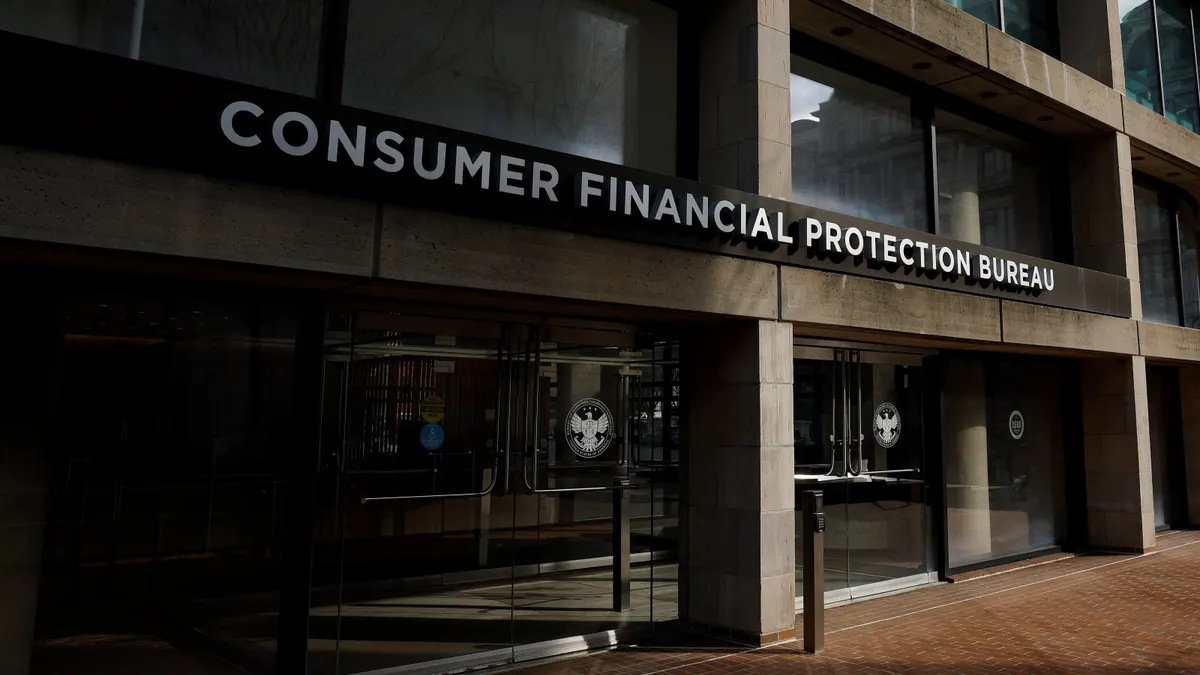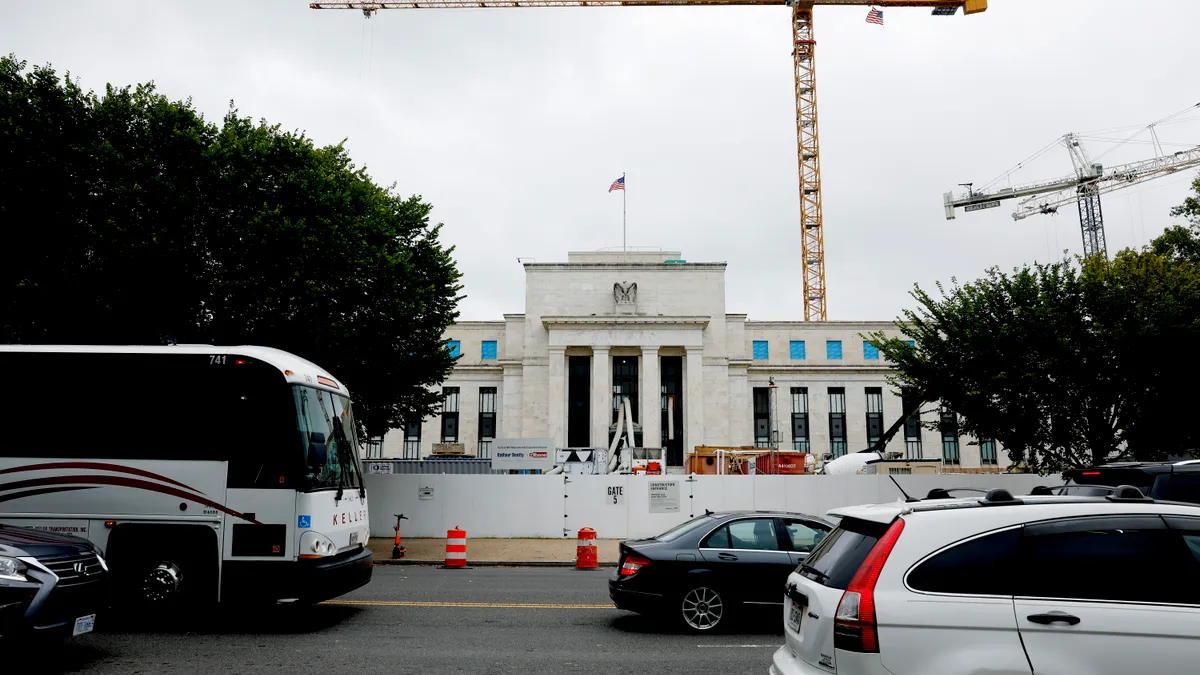The Federal Reserve on Friday signed off on three proposed bank mergers: Connecticut-based Webster Bank’s $5.1 billion all-stock acquisition of Sterling Bancorp; Delaware-based WSFS Financial’s $976.4 million purchase of Pennsylvania’s Bryn Mawr Trust; and the $2.2 billion merger between First Citizens BancShares and CIT Group.
The approvals come at a time when the lack of a green light — particularly from the Fed — has delayed a number of deals. When First Citizens and CIT announced their proposed tie-up in October 2020, the banks estimated it would be complete in the first half of this year. The Fed and the Federal Deposit Insurance Corp. (FDIC) in January each extended their public comment period on the merger "in light of the ongoing challenges from the coronavirus." That, in turn, pushed the expected completion time frame to Oct. 15.
As September ended, First Citizens and CIT extended until March 1, 2022, the timeline to complete the transaction, noting that the FDIC and the Office of the North Carolina Commissioner of Banks had each approved the deal.
"Action by the Federal Reserve Board is the remaining regulatory approval required to complete the merger, and both parties are committed to continuing to seek such approval," the banks said in a release Sept. 30.
The other two deals the Fed approved Friday — the WSFS tie-up proposed in March and the Webster transaction announced in April — were each originally estimated to close in the fourth quarter.
While the approvals break somewhat of a logjam, several mergers and acquisitions remain delayed by various regulators and even a court (or two).
Blue Ridge Bank and FVCB last month stood ready to delay their proposed merger by at least three months after the Office of the Comptroller of the Currency (OCC) found "certain regulatory concerns" with the former.
New York Community Bank in October said it didn't expect its $2.6 billion acquisition of Michigan-based Flagstar Bank to get state and federal regulators’ approval before the end of the year. CEO Thomas Cangemi said at the time he expects the transaction to be finalized next year.
VyStar Credit Union and Heritage Southeast Bank agreed in October to postpone — from Dec. 31 to Feb. 28 — the date by which they can terminate VyStar’s proposed acquisition of the bank. The transaction, at the time, was awaiting regulatory approvals from the FDIC, the National Credit Union Administration (NCUA), the Georgia Department of Banking and Finance and the Florida Office of Financial Regulation.
That’s not the only stalled credit union purchase of a bank. A county chancery court judge in Tennessee issued an injunction last month temporarily halting Memphis-based Orion Federal Credit Union’s proposed acquisition of Financial Federal Bank as the financial institutions and a state regulator haggle over the meaning of "acquire."
The Tennessee Department of Financial Institutions argues the word, as defined in the Tennessee Banking Act, limits the scope of a bank acquisition to its stock and charter and would forbid the assumption of assets. The credit union and bank, however, argue the Tennessee Banking Act doesn't explicitly define "acquire" and that a less ambiguous source should be used.
Judge Patricia Moskal ordered a "speedy hearing" to resolve legal and interpretive uncertainties but cited "the need to maintain the status quo during the pendency of this action."
Evansville, Indiana-based Old National Bank and Chicago-based First Midwest Bank also appear to be headed toward a delay in their $2.5 billion merger, proposed in June.
An Indianapolis-based fair-housing advocacy group sued Old National in October, alleging the bank is discriminating against Black borrowers trying to obtain mortgages.
Only 1.6% of the more than 2,250 mortgage loans the bank made in the Indianapolis metropolitan area in 2019 and 2020 were to Black borrowers, the Fair Housing Center of Central Indiana (FHCCI) alleged in a complaint filed in the U.S. District Court for the Southern District of Indiana. Bank data identifies the borrower's race on more than 91% of the loans, the FHCCI said.
Old National said in a statement it "strongly and categorically denies the claims" in the lawsuit. Old National and First Midwest originally estimated their tie-up to close at the end of 2021.
The FHCCI and two dozen other housing advocacy groups wrote the Fed and the OCC in late July, asking the regulators to hold public hearings. The OCC signed off on the merger in August. The FHCCI invited Old National to meet with it and federal regulators in September, but Old National did not respond, according to the FHCCI’s complaint.
"We are calling on the Federal Reserve to do what it is required to do," Amy Nelson, the FHCCI’s executive director, told The Indianapolis Star, "and conduct a thorough analysis and to address any disparities ... to make sure that Old National’s lending practices are fair to everybody."
The Fed had been in touch with the FHCCI in October, Nelson told American Banker.





















